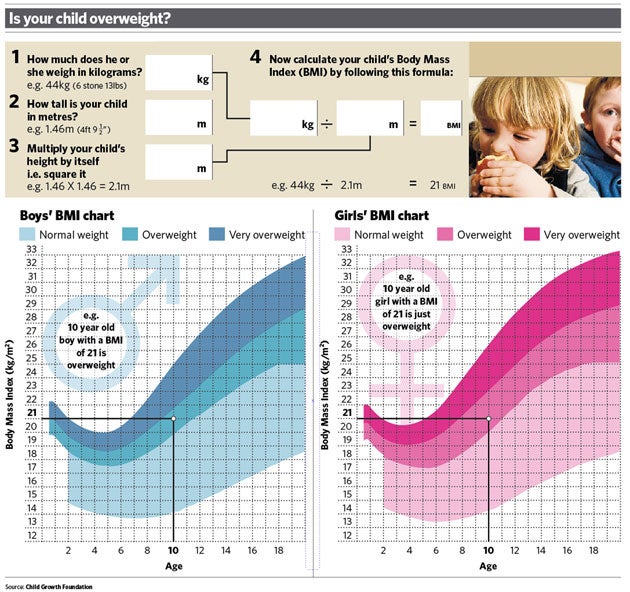Schools to warn parents their children are overweight in bid to cut obesity rate

Parents are to be told if their children are overweight when measured at school in an attempt to enlist their support to stem the obesity crisis, the Government announced yesterday.
But ministers have ruled that the heaviest children will not be branded "obese" to avoid stigmatising them and to ensure parents do not "switch off". Instead, these children will be described as "very overweight," in standard letters sent out to parents.
Tam Fry, of the National Obesity Forum, condemned the decision to drop the word obese as "prissy" and said a similar proposal in America had been reversed. "The Americans have gone back to using the term because it is the kind of shock word that makes parents sit up and take notice," he said.
From September, weight and height measurements taken in primary schools should be sent to parents together with a warning about the risks if their child is overweight, the Government said in guidance to primary care trusts (PCTs).
The move is a reversal of the much-criticised earlier policy under which parents only received the height and weight measurements of their children if they requested them.
Ivan Lewis, a Health minister, said: "It's clear from research we have done that parents want to know their child's results and whether there is a concern about their health. But they want clear information which is helpful and non-stigmatising.
"Research shows that most parents of overweight or obese children think that their child is a healthy weight. This isn't about pointing the finger and telling parents that their children are overweight, it's about equipping parents with the information they need to help their children live healthier lives."
Ministers said 40 per cent of PCTs had agreed to inform parents automatically of the results, and that a further 40 per cent were awaiting yesterday's guidance – but they admitted they could not compel them to do so.
Will Cavendish, the director of health and well-being at the Department of Health, said it was important parents received information that was useful and which helped them take action. "We have not banned [the word "obese"] but we have chosen not to use it. There's no point giving them a letter that doesn't have any impact on their behaviour."
Obesity was a family responsibility and the Government wanted to get the balance right between a "nanny state" and a "neglectful state", he added.
Obesity has risen rapidly among children, as it has among adults. Latest figures show that almost one in four five-year-olds (22.9 per cent) was overweight or obese in 2006-07. Among 10 to 11-year-olds, the figure is almost one in three (31.6 per cent).
Thirty years ago children regularly had their height and weight measured, but the practice fell into disuse. In 2006-07, it was resurrected because of panic over the global obesity crisis, but in the first year only 48 per cent of children were measured.
Many of those who chose to opt out were fatter children, so the results failed to deliver the hoped-for comprehensive picture of national obesity rates.
Last year the numbers measured rose to 80 per cent, and this year the Government has a set a target for PCTs (which take the measurements) of 85 per cent. But families will still retain the right to opt out.
The measurements are taken twice in primary school: in reception (aged four to five) and in year six (aged 10 to 11). Each child is measured in a private area and they are not given the results to take home to avoid bullying.
Letters to be sent out with the results of the school measurements will show parents where their child comes on a sliding scale, but will not give their exact BMI, to "avoid confusion". Those whose children are overweight will be warned they face an increased risk of high blood pressure, heart disease, diabetes and cancer.
However, the Liberal Democrat health spokeswoman Sandra Gidley said: "The Government is clearly pussy-footing around this issue. Unless these letters are accompanied by practical help, then they will be a waste of time and resources."
Join our commenting forum
Join thought-provoking conversations, follow other Independent readers and see their replies
Comments
Bookmark popover
Removed from bookmarks